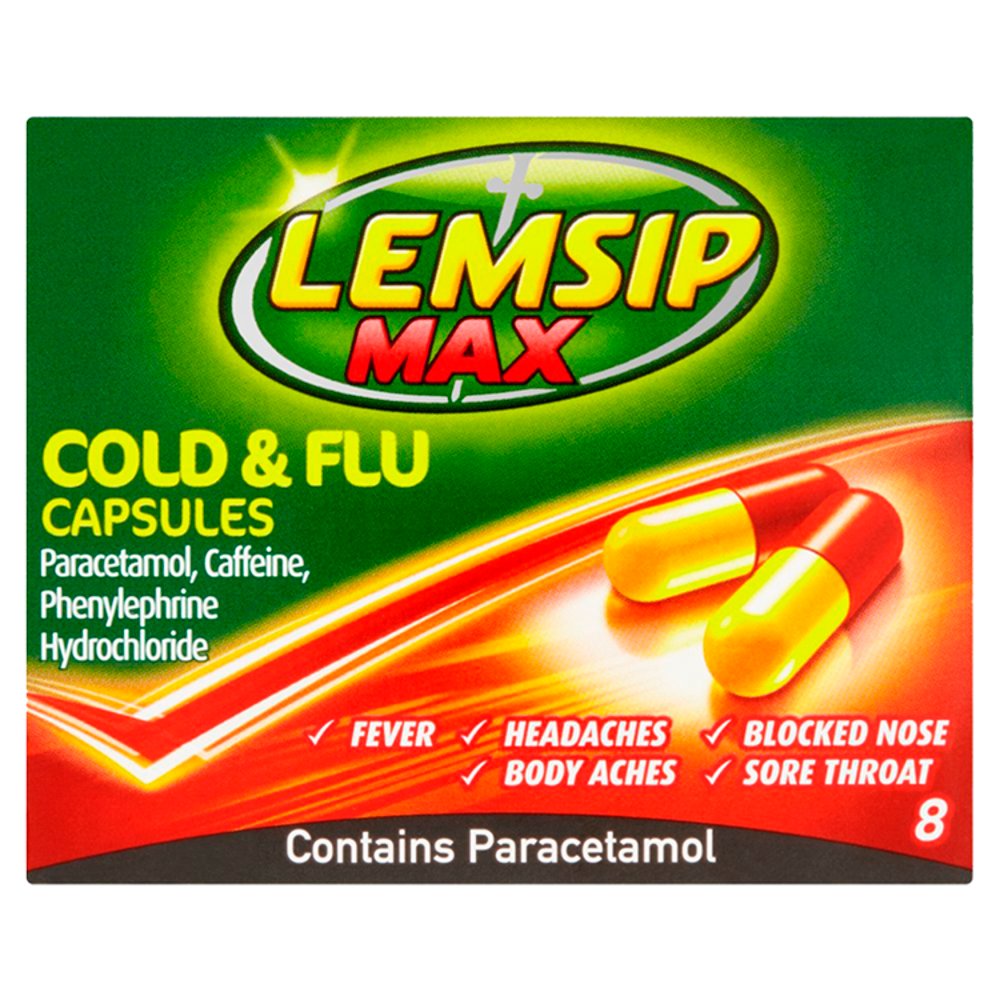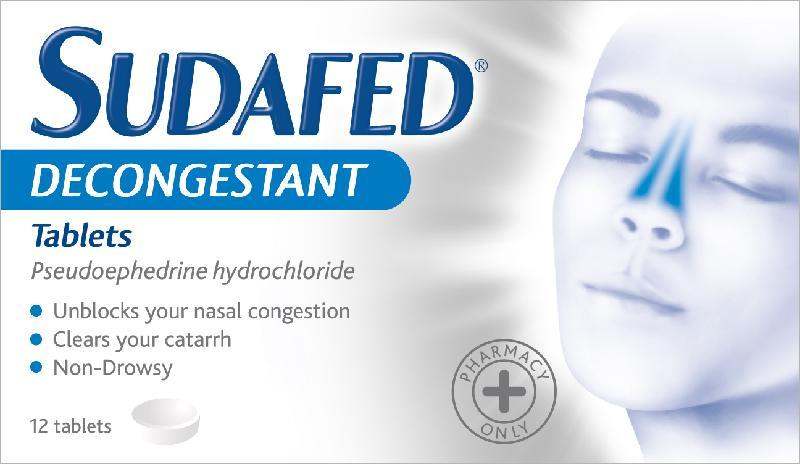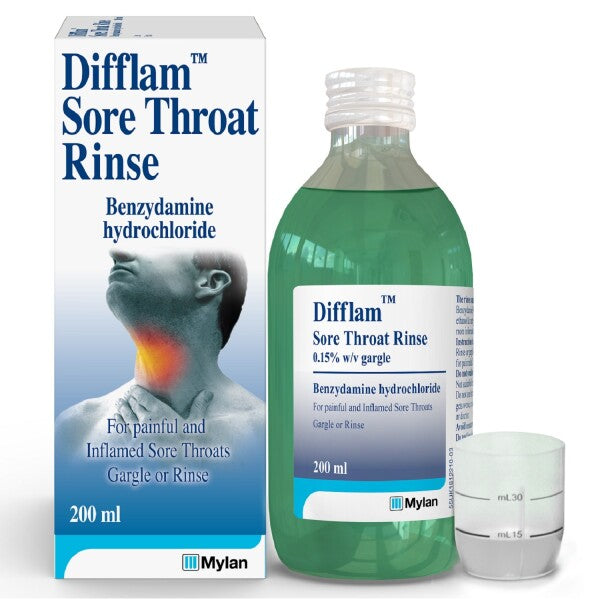How to Relieve Head Pressure from Coughing?


Related products
Head pressure resulting from coughing is a common experience that can range from mildly discomforting to severely incapacitating. This article delves into the phenomenon, exploring its causes, implications, and most importantly, methods of relief. It is essential to address this issue, not only for immediate comfort but also to prevent potential long-term effects on one's health. The aim of this article is to provide comprehensive, medically-informed insights and practical solutions to those suffering from head pressure due to coughing. . For more information on effective treatments and ways to ease these symptoms, visit the Coughs & Colds page on Welzo.
Coughing, a reflex action to clear the throat and airways, often causes a sudden and significant change in intrathoracic pressure. Dr. Emily Clark, a renowned neurologist, explains, "When you cough, the pressure in your chest and abdominal cavity increases dramatically. This can temporarily alter blood flow to and from your brain, leading to a sensation of head pressure." Such pressure is usually transient and harmless, but frequent or chronic coughing can lead to persistent discomfort. In cases of chronic cough, using products like NeilMed Adult Nasal Irrigation Sinus Rinse Complete Kit can help relieve sinus congestion and reduce head pressure.
Statistically, a significant number of patients reporting to ENT clinics present symptoms of head pressure associated with coughing. According to a study published in the Journal of Otolaryngology, approximately 20% of patients experiencing chronic cough also report concurrent sensations of head pressure. In such cases, using a decongestant like Sterimar Stop Prote may help alleviate sinus pressure and ease head discomfort.
Causes of Head Pressure When Coughing
Several factors can contribute to the sensation of head pressure during or after coughing. These include sinus congestion, migraines, high blood pressure, and even stress. Dr. Alan Smith, a specialist in respiratory medicine, points out, "Sinus issues are a common culprit. When your sinuses are congested, coughing can cause an increase in sinus pressure, leading to a feeling of heaviness or fullness in the head." Additionally, conditions like hypertension can exacerbate the sensation, as increased blood pressure during coughing can put additional strain on cerebral vessels. A product like Robitussin Mucus Cough with Congestion Relief can help relieve mucus buildup and reduce sinus pressure, offering some relief from head pressure.
Practical Steps
Relief from head pressure caused by coughing often involves addressing the underlying cause of the cough itself. For instance, if the cough is due to a respiratory infection, treating the infection can alleviate the symptom. Over-the-counter medications like decongestants can be effective in cases where sinus congestion is a factor. Potter's Mucus Cough can be a helpful remedy to relieve mucus buildup associated with coughs.
Hydration is another key aspect. Dr. Sarah Bennett, a general practitioner, advises, "Staying well-hydrated helps thin out mucus, making it easier to cough up and reducing sinus pressure." She also recommends steam inhalation as a simple yet effective home remedy to alleviate congestion and, by extension, head pressure. Additionally, taking something like Care Night Cold & Flu Relief Oral Solution can help reduce both cold and flu symptoms, easing coughing and head pressure during the night.
Long-term Management

For those who frequently experience head pressure due to coughing, long-term management strategies can be beneficial. This includes regular exercise, which improves overall cardiovascular health and can reduce the frequency of cough-related head pressure. Additionally, managing stress through techniques like meditation or yoga can indirectly help by reducing the severity and frequency of coughing spells.
Preventative measures are equally important. Avoiding known irritants, such as smoke or allergens, can decrease the likelihood of coughing episodes. Regular vaccinations, especially against flu and pneumonia, are also effective in reducing the risk of respiratory infections that can lead to coughing and associated head pressure.
While head pressure caused by coughing is usually a benign symptom, it can significantly impact one's quality of life. Understanding its causes and implementing both immediate relief measures and long-term management strategies are essential. By staying informed and proactive, individuals can effectively mitigate this uncomfortable symptom, ensuring both comfort and health in their daily lives. Remember, when in doubt, consulting a healthcare professional is always the best course of action to address persistent or severe symptoms.
Understanding Head Pressure and Coughing
Explanation of Head Pressure
Head pressure during coughing is a sensation often described as a feeling of tightness, heaviness, or discomfort in the head. It can vary from a mild annoyance to a more intense and distressing experience. Dr. Emily Clark, a renowned neurologist, offers insight: "Head pressure can manifest in different ways, depending on the individual. Some may experience it as a dull ache, while others might feel a sharp pain. It's a subjective sensation, often linked to the rapid changes in pressure within the chest and abdomen during a cough."
Common Causes
Coughing, a reflex action to clear the throat and airways, can be triggered by a variety of causes, ranging from benign to more serious health concerns. Common causes include respiratory infections such as colds and flu, allergies, asthma, and even environmental irritants like smoke or dust. Dr. Alan Smith, a specialist in respiratory medicine, notes, "The cause of the cough is pivotal in understanding the associated head pressure. For instance, a cough due to an allergy may also involve sinus congestion, which contributes to the sensation of head pressure." For a range of other remedies, you can explore the Cold Remedies collection, which includes various products designed to help with common cold symptoms, including cough and head pressure.
Statistics from a study in the Journal of Respiratory Medicine reveal that about 30% of patients with chronic cough experience secondary symptoms such as head pressure, underscoring the need to address the root cause of the cough.
Why Do I Feel Pressure in My Head When I Cough?
Detailed Exploration
When an individual coughs, there is a significant and rapid change in intrathoracic (inside the chest) and intra-abdominal pressure. Dr. Clark elaborates, "Coughing causes a spike in pressure within the chest cavity. This, in turn, affects the blood flow to and from the brain, temporarily disrupting normal cerebral dynamics, which can manifest as head pressure."
This change in pressure can also influence the sinuses, which are air-filled cavities in the skull. During a cough, the increased pressure can lead to a sensation of fullness or pressure in the head, especially if there is existing sinus congestion or inflammation.
Moreover, the act of coughing can cause brief, intense spikes in blood pressure. For individuals with underlying conditions like hypertension, these spikes can exacerbate the sensation of head pressure. Dr. Smith adds, "Cough-induced fluctuations in blood pressure are often overlooked, but they play a crucial role, especially in patients with pre-existing cardiovascular issues."
The body's physiological response to a cough also involves the tensing of various muscles, including those in the head and neck region. This muscle tension can contribute to the sensation of pressure in the head.
The sensation of head pressure while coughing is a complex interplay of changes in pressure within the chest and abdomen, blood flow alterations, sinus pressure, and muscle tension. Understanding these mechanisms is key to addressing the symptom effectively. It is always advisable to consult a healthcare professional if head pressure during coughing is persistent, severe, or accompanied by other symptoms, as it may indicate a more serious underlying condition.
Identifying the Symptoms

Head pressure from coughing is not a singular sensation but can manifest in a variety of symptoms. These symptoms are often interconnected, leading to a complex experience for the sufferer. Commonly reported sensations include a feeling of tightness or heaviness in the head, often described as though a tight band is wrapped around the head. Dr. Emily Clark, a neurologist, explains, "Patients may experience a range of symptoms from dull, persistent aches to sharp, stabbing pains in the head when they cough. Some even report a throbbing sensation, akin to a heartbeat in the head." For those looking to alleviate such symptoms, products from the Benylin collection can be an effective solution for treating cough and congestion.
Additionally, the intensity of these symptoms can vary depending on factors like the severity and duration of the cough, as well as individual health profiles. In some cases, patients report associated symptoms such as dizziness, nausea, or a temporary blurring of vision. These symptoms are particularly prevalent in cases where the coughing is severe or chronic.
Why Does My Head Hurt When I Cough?
The National Health Service (NHS) in the United Kingdom provides comprehensive insights into why coughing can lead to head pain. According to NHS guidelines, coughing increases pressure in the chest and abdominal area, which in turn affects the pressure in the brain, leading to head pain. This is particularly evident in cases of severe or chronic coughing. The NHS also acknowledges that sinus issues, which are often linked to coughs, can exacerbate this head pain.
Dr. Alan Smith, a respiratory specialist, supports this view, stating, "The link between coughing and head pain is well-established. The transient increase in intracranial pressure during a cough can precipitate head pain, especially in individuals predisposed to headaches or migraines."
Warning Signs
While occasional head pressure associated with coughing is usually not a cause for alarm, there are certain warning signs that should prompt immediate medical attention. The NHS advises that if the head pain is severe, sudden, or unusual, it should be evaluated by a healthcare professional. Dr. Sarah Bennett, a general practitioner, outlines key warning signs: "Seek medical help if your head pain is accompanied by symptoms like persistent vomiting, a stiff neck, rash, confusion, seizures, or if it worsens despite taking over-the-counter pain relief."
Moreover, if the coughing and associated head pressure persist for more than a few weeks, it is advisable to consult a doctor to rule out underlying conditions. Statistics from the British Lung Foundation indicate that chronic coughing (lasting more than eight weeks) affects approximately 12% of the UK population, with a significant percentage experiencing secondary symptoms like head pressure.
While head pressure during coughing is common, understanding its symptoms and knowing when to seek medical advice is crucial. By being aware of the varied manifestations of this condition and heeding the advice of healthcare professionals like those at the NHS, individuals can ensure they receive appropriate care and avoid potential complications. Always remember, when it comes to health, it is better to err on the side of caution and consult a medical professional if symptoms are persistent, severe, or accompanied by other concerning signs.
Home Remedies for Relief
Hydration
Hydration plays a pivotal role in managing symptoms of head pressure due to coughing. Dr. Sarah Bennett, a general practitioner, emphasizes its significance: "Adequate hydration helps to thin mucus secretions, facilitating easier breathing and potentially reducing the severity of coughs." Drinking plenty of fluids, particularly water, herbal teas, and broths, can also aid in overall bodily functions, including circulation, which may mitigate the sensations of head pressure.
Statistics from the British Nutrition Foundation suggest that a significant proportion of the population does not consume adequate fluids daily, potentially exacerbating symptoms like head pressure when ill. Ensuring a consistent intake of fluids is a simple yet effective way to manage these symptoms.
Steam Inhalation
Steam inhalation is a time-honored remedy for relieving cough and associated head pressure. Dr. Alan Smith, a respiratory specialist, explains the process: "Inhaling steam helps to moisten the nasal passages, relieve sinus pressure, and loosen mucus in the chest, thus easing the cough and consequently the head pressure." To perform steam inhalation, one can simply pour hot water into a bowl, lean over it while covering the head with a towel, and inhale the steam for a few minutes.
Rest and Relaxation Techniques
Rest is crucial in allowing the body to heal and recover from any illness, including a cough. Dr. Emily Clark, a neurologist, advises, "Adequate rest can significantly reduce the frequency and intensity of coughing bouts, which in turn can lessen the head pressure." Alongside rest, relaxation techniques such as deep breathing, meditation, and gentle yoga can also help in reducing stress, which is often a trigger for coughing and subsequent head pressure.
What Home Remedy Can I Use for Head Pain When I Cough?
There are various accessible and effective home remedies for alleviating head pain caused by coughing. One such remedy is the application of a warm compress to the forehead or sinuses, which can help to relieve sinus pressure and reduce head pain. Additionally, gentle massage around the temples, neck, and shoulders can also help in reducing muscle tension, a contributor to head pressure.
Herbal teas, particularly those with anti-inflammatory properties like ginger or chamomile, can be soothing and may offer some relief from head pain. Dr. Bennett notes, "Herbal teas not only keep you hydrated but also provide therapeutic benefits that can alleviate symptoms of cough and head pressure."
Over-the-Counter Medications
When home remedies are not sufficient, over-the-counter (OTC) medications may be used as a supplement for relief. Pain relievers like paracetamol or ibuprofen can be effective in managing head pain associated with coughing. However, it is important to follow the recommended dosages and consider any potential interactions with other medications.
Decongestants can also be beneficial, particularly if the cough and head pressure are related to sinus issues. Dr. Smith cautions, "While OTC medications can be helpful, they are not without side effects. It’s important to use them judiciously and consult a healthcare professional if symptoms persist."
Managing head pressure from coughing through home remedies and OTC medications can be effective. Hydration, steam inhalation, rest, relaxation techniques, and the judicious use of pain relievers and decongestants can all play a role in providing relief. However, if symptoms persist or worsen, it is essential to seek professional medical advice.
Lifestyle Adjustments

Diet Modifications
Diet plays a significant role in managing and potentially reducing coughing, which in turn can alleviate head pressure. Certain foods and beverages may exacerbate coughing and should be limited. For instance, spicy foods, caffeine, and alcohol can trigger or worsen coughs in some individuals. Dr. Emily Clark, a neurologist, suggests, "Incorporating anti-inflammatory foods such as ginger, honey, and turmeric into your diet can have soothing effects on the throat, potentially reducing coughing."
Additionally, maintaining a balanced diet rich in vitamins and minerals strengthens the immune system, making it more resilient to infections that can cause coughing. A study published in the Journal of Clinical Nutrition found that a diet high in fruits, vegetables, and whole grains was associated with a lower incidence of respiratory conditions.
Importance of Maintaining Good Air Quality
Good air quality is crucial in reducing irritants that can trigger coughing and subsequent head pressure. Environmental factors like dust, pollen, smoke, and other pollutants can aggravate the respiratory system. Dr. Alan Smith, a respiratory specialist, advises, "Keeping the living environment clean and free from dust and using air purifiers, especially in urban areas with high pollution, can significantly reduce coughing episodes."
Humidifiers can also be beneficial, particularly in dry environments, as they add moisture to the air, which helps to soothe irritated airways and reduce coughing. However, it's important to regularly clean humidifiers to prevent the growth of mould and bacteria.
Exercise
Regular exercise is another key lifestyle adjustment that can help in reducing the symptoms of coughing and head pressure. Exercise improves overall lung capacity and health, which can make the respiratory system more efficient and less prone to coughing. Dr. Sarah Bennett, a general practitioner, notes, "Moderate, consistent exercise, particularly cardiovascular activities like walking, jogging, or swimming, can strengthen the respiratory muscles and improve lung function."
However, it's important for individuals with chronic respiratory conditions like asthma to tailor their exercise regimen appropriately and consult with a healthcare provider. Exercising in clean air environments and avoiding extreme temperatures can also help in reducing cough-induced symptoms.
Lifestyle adjustments such as dietary modifications, maintaining good air quality, and regular exercise play a crucial role in managing and reducing the symptoms associated with coughing and head pressure. These changes not only address the immediate symptoms but also contribute to overall health and wellbeing, making the body more resilient to respiratory issues.
Medical Treatments
When to Consult a Doctor
Knowing when to consult a doctor is crucial for anyone experiencing persistent cough and head pressure. Dr. Emily Clark, a neurologist, advises, "If coughing persists for more than three weeks, is unusually severe, or is accompanied by symptoms like shortness of breath, chest pain, or coughing up blood, it's imperative to seek medical advice." Additionally, if the head pressure is severe, atypical, or doesn't respond to over-the-counter medications, this warrants a doctor's visit.
Possible Medical Conditions
Persistent cough and head pressure can be symptoms of various medical conditions. Some of these include:
- Respiratory Infections: Conditions like bronchitis or pneumonia can cause a prolonged cough and increased head pressure.
- Chronic Obstructive Pulmonary Disease (COPD): This includes emphysema and chronic bronchitis, often seen in long-term smokers.
- Asthma: Chronic inflammation of airways can lead to coughing and associated head pressure.
- Gastroesophageal Reflux Disease (GERD): Acid reflux can irritate the throat and airways, leading to coughing and head discomfort.
- Sinusitis: Inflammation of the sinuses can cause persistent cough and head pressure due to congestion.
Dr. Alan Smith, a respiratory specialist, states, "Each of these conditions requires a specific diagnostic approach and treatment plan. It's important not to self-diagnose and seek professional medical advice for persistent symptoms."
Overview
Prescription Medications
For certain conditions, doctors may prescribe medications such as:
- Antibiotics: For bacterial infections causing cough and head pressure.
- Inhalers and Bronchodilators: For asthma or COPD, these medications help open airways and ease breathing.
- Antihistamines or Decongestants: For allergies or sinusitis.
- Acid Suppressants: For GERD-related cough.
Dr. Sarah Bennett, a general practitioner, notes, "It's important to use these medications as prescribed by a healthcare professional and be aware of potential side effects."
Therapies
Apart from medications, certain therapies may be recommended:
- Physical Therapy: Including breathing exercises, particularly for COPD or asthma patients.
- Speech Therapy: To learn techniques to reduce coughing caused by conditions like chronic throat clearing.
- Dietary Therapy: Particularly for GERD, where dietary changes can significantly reduce symptoms.
Monitoring
For chronic conditions, ongoing monitoring and adjustments in treatment are often necessary. Regular check-ups, lung function tests, and symptom tracking can help in effectively managing the condition.
When cough and head pressure are persistent, consulting a healthcare professional is essential. Understanding the underlying cause is key to effective treatment, which may include prescription medications and various therapies. Each individual's situation is unique, and therefore, treatments should be tailored to their specific needs and medical history.
How to Relieve Head Pressure
How Do You Get Rid of Pressure on Your Head?
Alleviating head pressure, particularly when related to coughing, involves a multifaceted approach that combines home remedies with professional medical advice. The strategies outlined here aim to provide comprehensive relief.
Home Remedies
-
Hydration: Maintaining optimal hydration is key. Drinking plenty of water and fluids like herbal teas can help in thinning mucus, which can reduce coughing and consequently alleviate head pressure.
-
Steam Inhalation: A simple and effective remedy is inhaling steam. This can be done by boiling water, pouring it into a bowl, and inhaling the steam while covering your head with a towel. This method helps in opening nasal passages and reducing sinus pressure.
-
Warm Compress: Applying a warm compress to the forehead or sinuses can help in relieving the sensation of pressure. It soothes the area and can ease the tension in the head.
-
Rest and Relaxation: Adequate rest is vital. Additionally, relaxation techniques such as meditation or gentle yoga can help in reducing stress, which can exacerbate coughing and head pressure.
-
Diet Adjustments: Eating anti-inflammatory foods like ginger, honey, and turmeric can soothe the throat. Avoiding irritants like caffeine and alcohol is also recommended.
-
Exercise: Gentle exercise, especially those focusing on deep breathing like yoga or pilates, can improve overall lung and cardiovascular health, potentially reducing the frequency and intensity of coughing.
Medical Advice
-
Consultation: If home remedies don't provide relief, or if symptoms are severe or persistent, it is important to consult a doctor. This is particularly crucial if the head pressure is accompanied by other symptoms like dizziness, blurred vision, or severe pain.
-
Medication: Depending on the underlying cause, a doctor may prescribe medications such as decongestants, pain relievers, or specific treatments for underlying conditions like asthma or GERD.
-
Physical Therapy: For some conditions, especially those involving respiratory issues, physical therapy that includes breathing exercises can be beneficial.
-
Regular Monitoring: For chronic conditions, regular check-ups and monitoring are essential to manage the condition effectively and adjust treatments as needed.
Relieving head pressure caused by coughing involves a balance of home-based practices and medical interventions. Staying hydrated, using steam inhalation, applying warm compresses, ensuring adequate rest, adjusting the diet, and engaging in gentle exercise are all effective home strategies. However, if these measures are insufficient, or if symptoms are severe or persistent, seeking medical advice is crucial. A healthcare professional can provide tailored treatments and advice, ensuring both immediate relief and long-term management of the underlying causes.
Preventive Measures

Tips
Prevention is key in avoiding the discomfort of cough-induced head pressure. Here are some effective strategies:
-
Maintain a Healthy Lifestyle: A balanced diet, regular exercise, and adequate sleep bolster the immune system, making the body more resilient against infections that can cause coughing.
-
Stay Hydrated: Drinking plenty of fluids helps keep the mucous membranes moist, reducing the likelihood of coughing.
-
Avoid Irritants: Smoke, dust, and other pollutants can trigger coughing. Avoiding exposure to these irritants, and using air purifiers in the home, can be beneficial.
-
Practice Good Hygiene: Regular handwashing and avoiding close contact with people who are ill can reduce the risk of respiratory infections.
-
Manage Allergies: If allergies are a trigger, managing them with the help of antihistamines or nasal sprays can prevent coughing episodes.
-
Humidify Your Environment: Using a humidifier, especially in dry climates, can help prevent coughs related to dry air.
-
Breathing Exercises: Regularly practicing breathing exercises can strengthen respiratory muscles and improve lung function, reducing the frequency of coughing.
Importance
Vaccinations play a critical role in preventing respiratory infections that can lead to coughing and head pressure. Dr. Sarah Bennett, a general practitioner, states, "Vaccinations, such as the flu shot and the pneumococcal vaccine, are vital in preventing infections that can cause severe coughing."
In addition to vaccinations, regular health check-ups are crucial for early detection and management of conditions that could cause coughing. This is particularly important for individuals with a history of respiratory issues, such as asthma or COPD.
Dr. Emily Clark, a neurologist, emphasizes the importance of regular medical evaluations: "Regular check-ups allow for monitoring of existing conditions, adjustments in medications, and early intervention for any new symptoms."
Preventive measures against cough and subsequent head pressure involve a combination of lifestyle choices, environmental modifications, and proactive healthcare. Maintaining a healthy lifestyle, avoiding irritants, managing allergies, using humidifiers, and practicing good hygiene are effective strategies. Furthermore, staying up to date with vaccinations and regular health check-ups are essential in preventing respiratory infections and managing chronic conditions. By adopting these practices, individuals can significantly reduce the likelihood of experiencing cough-induced head pressure.
Understanding Complications
Potential Complications
Ignoring symptoms of persistent cough and head pressure can lead to various complications, impacting overall health and quality of life. Here are some potential risks:
-
Chronic Respiratory Conditions: Conditions like chronic bronchitis or asthma can worsen if a persistent cough is not properly treated, leading to long-term respiratory issues.
-
Sinusitis: Persistent cough and head pressure may be signs of sinus infections. If left untreated, this can lead to chronic sinusitis, which can be more difficult to treat and can cause ongoing discomfort and health issues.
-
Cardiovascular Strain: Frequent, severe coughing can strain the cardiovascular system. Dr. Alan Smith, a respiratory specialist, warns, "Persistent coughing increases intrathoracic pressure, which can have adverse effects on the heart, especially in individuals with pre-existing heart conditions."
-
Risk of Infection Spreading: A persistent cough can be a sign of an underlying infection. If not treated, it can worsen or spread to other parts of the body.
-
Decreased Quality of Life: Chronic cough and head pressure can interfere with sleep, work, and daily activities, leading to decreased overall quality of life.
Long-term Effects on Health
Ignoring these symptoms can have long-lasting impacts on health. Dr. Sarah Bennett, a general practitioner, notes, "Long-term effects of untreated cough and head pressure include chronic fatigue, persistent headaches, and an increased risk of developing more serious respiratory conditions."
Moreover, chronic coughing can lead to complications such as:
- Muscle Strain: Frequent coughing can strain muscles in the chest and abdomen, leading to chronic pain or discomfort.
- Barotrauma: Repeated forceful coughing can cause small air sacs in the lungs (alveoli) to rupture, leading to complications such as pneumothorax (collapsed lung).
- Hearing Issues: In rare cases, extreme coughing can lead to problems such as a ruptured eardrum.
It is essential to take persistent cough and head pressure seriously. These symptoms can be indicative of underlying health issues that, if left unaddressed, can lead to significant long-term health complications. Seeking medical advice for persistent or severe symptoms is crucial in preventing these potential complications and maintaining overall health and wellbeing. Regular check-ups and proactive management of any respiratory issues are key strategies in avoiding long-term adverse health effects.
Conclusion
The journey through understanding and managing cough-induced head pressure highlights several key points crucial for maintaining good health and well-being. Here is a summary of the essential aspects covered:
-
Understanding the Condition: Head pressure from coughing is a common symptom, often resulting from changes in intrathoracic and intra-abdominal pressure during coughing. It's important to understand the various causes and manifestations of this symptom.
-
Identifying Symptoms: Recognizing the signs of head pressure related to coughing, such as tightness, heaviness, or discomfort in the head, is vital. Knowing when these symptoms warrant medical attention can prevent further complications.
-
Home Remedies and Lifestyle Adjustments: Simple home remedies like hydration, steam inhalation, and warm compresses can provide relief. Lifestyle changes, including diet modifications, ensuring good air quality, and regular exercise, play a significant role in managing and preventing symptoms.
-
Medical Treatments: For persistent or severe cases, seeking medical advice is essential. Prescription medications and various therapies may be necessary depending on the underlying cause.
-
Preventive Measures: Preventative strategies like maintaining a healthy lifestyle, practicing good hygiene, managing allergies, and staying up-to-date with vaccinations are crucial in reducing the risk of developing cough and head pressure.
-
Understanding Complications: Ignoring persistent cough and head pressure can lead to serious health complications, emphasizing the importance of addressing these symptoms promptly.
While head pressure from coughing is often a benign and temporary discomfort, it is important to take these symptoms seriously. Persistent or severe cases should prompt a consultation with a healthcare professional to rule out underlying conditions and to receive appropriate treatment. The combination of home remedies, lifestyle adjustments, and professional medical advice offers a comprehensive approach to managing and preventing this common health issue. Remember, your health is invaluable, and proactive care is key to maintaining it.























 Rated Excellent by 26,523+ Reviews
Rated Excellent by 26,523+ Reviews